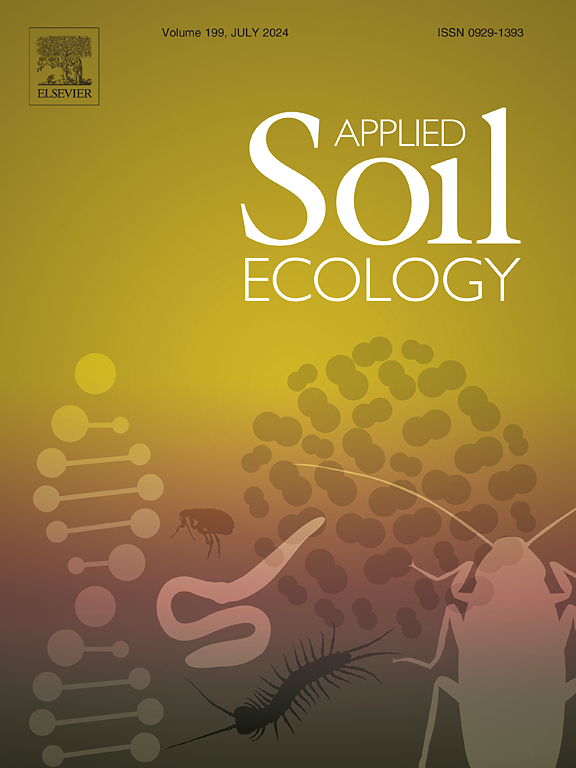Belowground herbivory alter invasive plant-soil feedback and reduce aboveground herbivory
IF 4.8
2区 农林科学
Q1 SOIL SCIENCE
引用次数: 0
Abstract
Plant-soil feedback (PSF) can facilitate plant invasions by influencing plant performance and herbivore resistance, with environmental factors modulating these effects. Invasive plants are often subjected to a range of herbivores in nature, including both above- and belowground herbivores. However, the PSF effects on the intricate interactions between invasive plants and above- and belowground herbivores remain poorly understood. To address this knowledge gap, we experimentally estimated the direct effects of the PSF on the invasive plant Alternanthera philoxeroides under root herbivory (induced by the nematode Meloidogyne incognita) and the indirect effects of root herbivory on aboveground herbivory (by Spodoptera litura) in legacy soils by a potted experiment. We found that root herbivory reduced the positive PSF of the legacy soils to invasive plants, and the legacy soils can also reduce the density and parasitism of the root herbivores. Moreover, the combined effect of legacy soils and root herbivory led to a reduction in foliar herbivory on invasive plants. Legacy soils had a stronger impact on invasive plant growth, nutrient allocation, and foliar herbivory compared to root herbivory. These results highlight the importance of belowground herbivores in shaping PSF effects, and suggest that PSF can be influenced by root herbivory, and subsequently affected foliar herbivory. Our findings provided novel insights into the role of PSF in mediating interactions between above- and belowground herbivory in the context of plant invasion.
求助全文
约1分钟内获得全文
求助全文
来源期刊

Applied Soil Ecology
农林科学-土壤科学
CiteScore
9.70
自引率
4.20%
发文量
363
审稿时长
5.3 months
期刊介绍:
Applied Soil Ecology addresses the role of soil organisms and their interactions in relation to: sustainability and productivity, nutrient cycling and other soil processes, the maintenance of soil functions, the impact of human activities on soil ecosystems and bio(techno)logical control of soil-inhabiting pests, diseases and weeds.
 求助内容:
求助内容: 应助结果提醒方式:
应助结果提醒方式:


